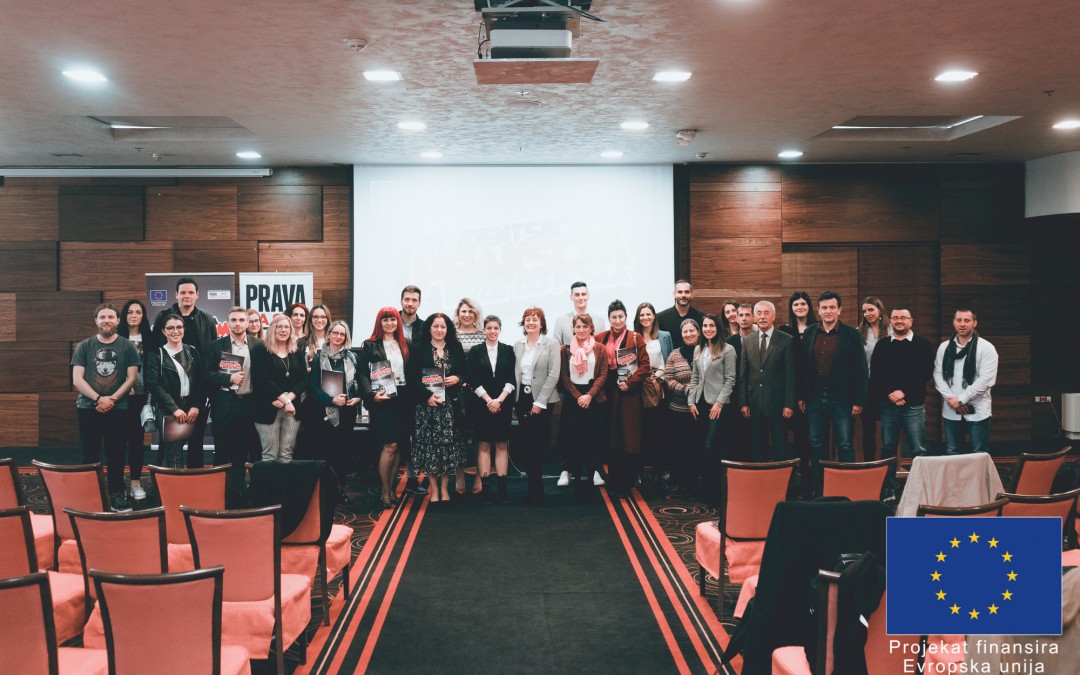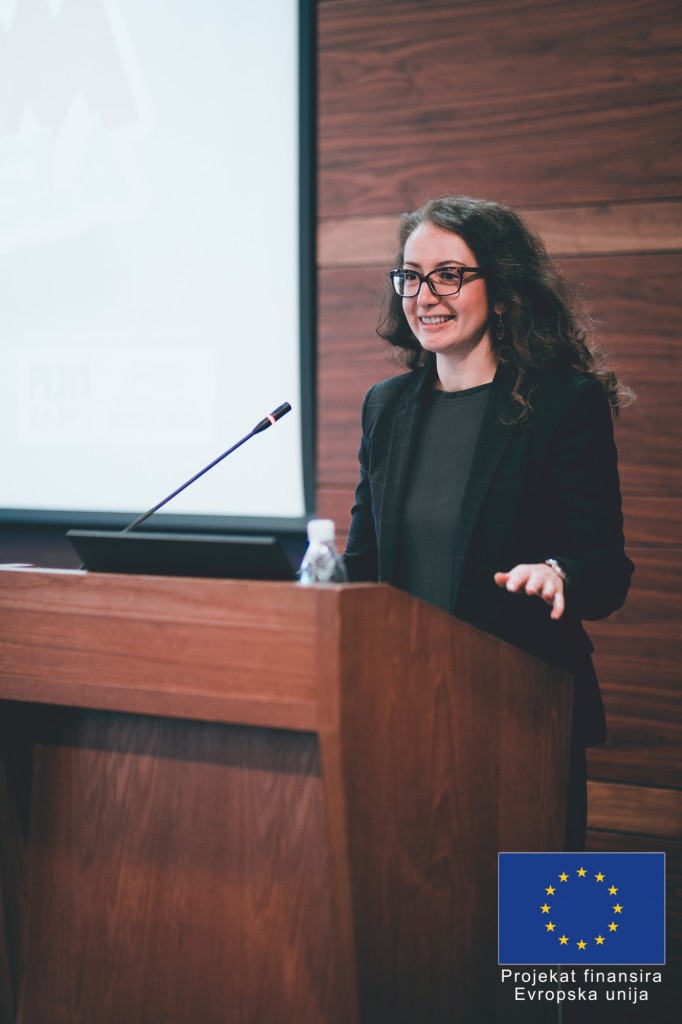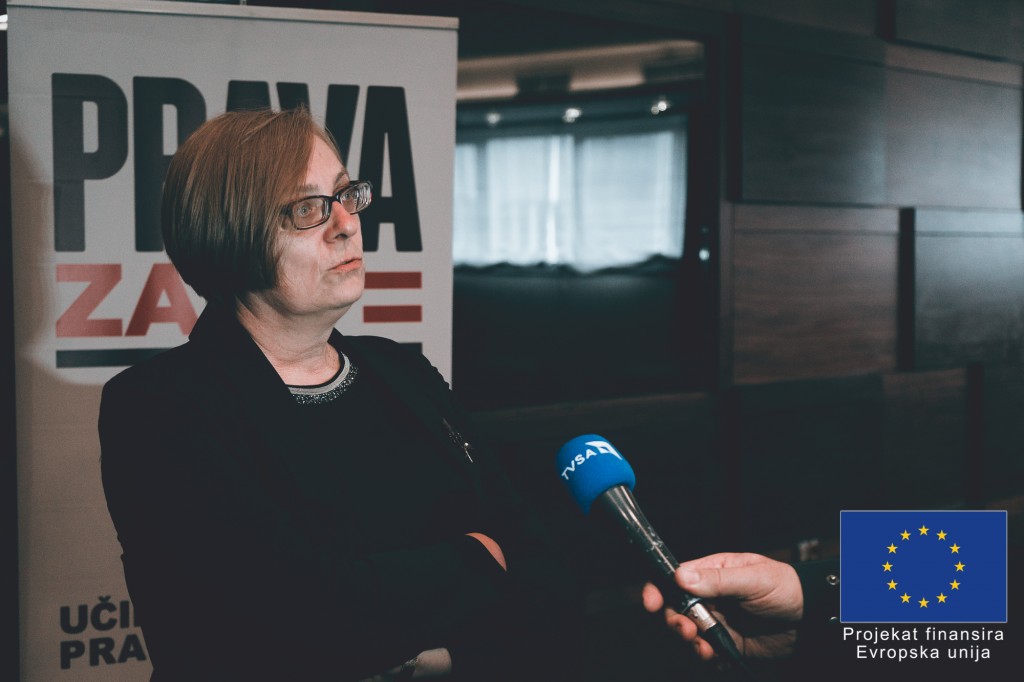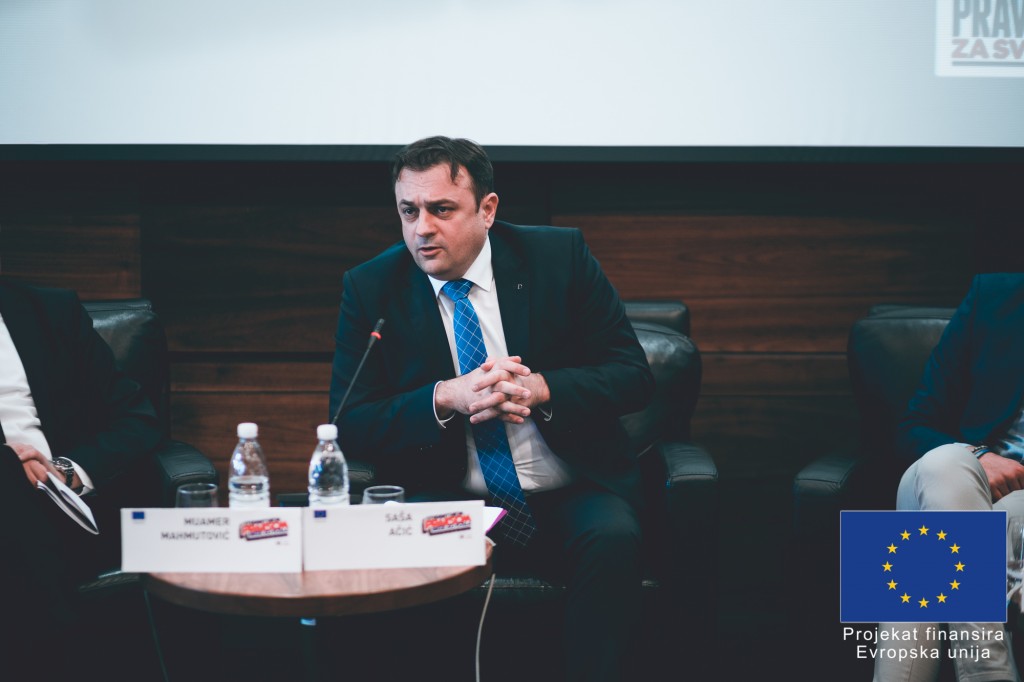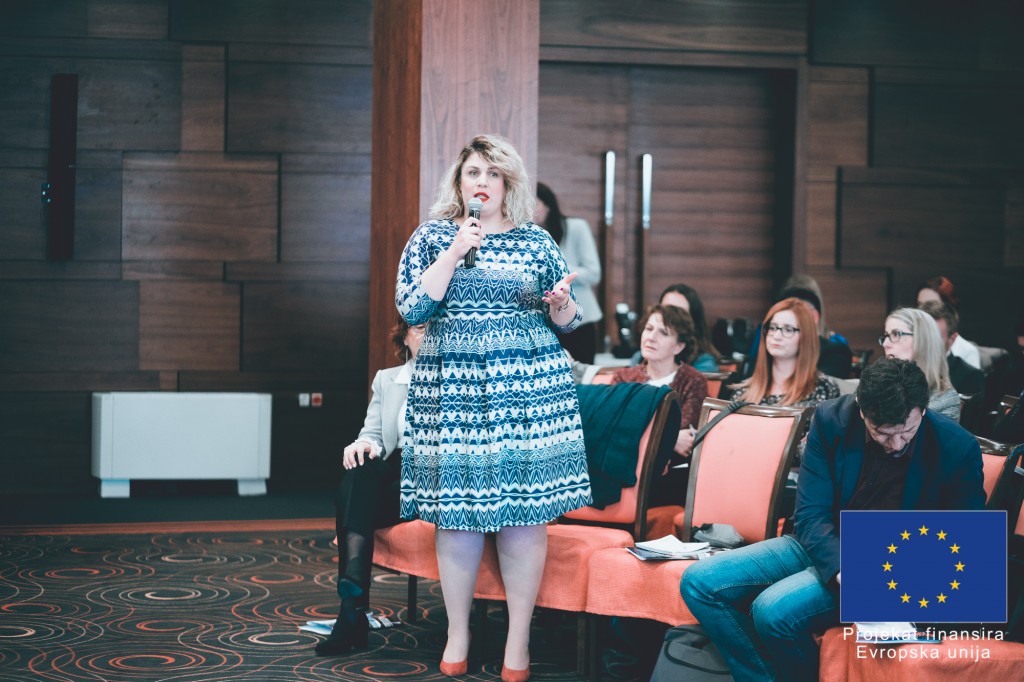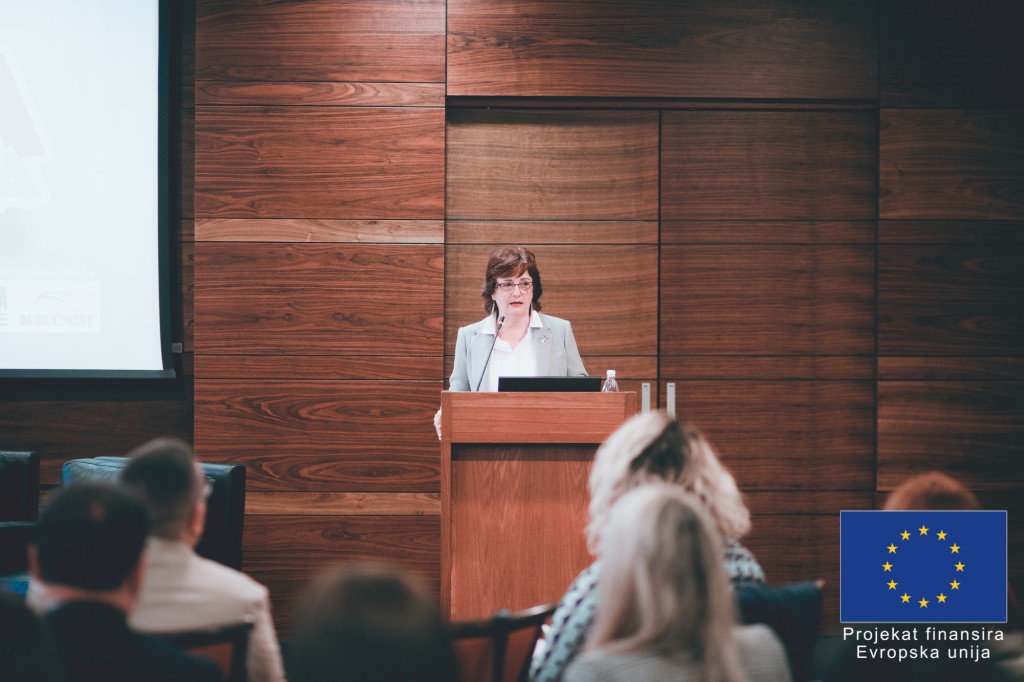Employers, academia, students and civil society organizations gathered at an conference held in Sarajevo, 15.4.2019. entitled “Student Internship: a Fast Track to a Job”, in order to examine the necessity of introducing practical instruction as an incentive to better education and faster employment of youth in Bosnia and Herzegovina.
The conference was organized by associations “Prava za sve“ Sarajevo and “Budućnost“ Modriča, as part of the project of the same name, implemented with the financial support of the European Union. “Over the past 20 years, the European Union has allocated over 60 million Euro for the support of the education sector, which we will continue to do in the future. Special attention will be paid to higher education reform and transition of youth to their employment, having in mind that the connection between education and the labor market is necessary for their professional training“, says Ljiljana Pandžić from the Delegation of the European Union in Bosnia and Herzegovina.
“What does adjustment between the labor market and education mean? Do we need to adjust education to the work market, or vice versa? How do our children get jobs in external markets? There are so called “FachSchule”, education within particular sectors. In B&H we have a professional study, for example, in electrical engineering and mathematical studies – these are students who are immediately ready for the labor market after the studies. Universities cannot take over the role of the state, employers and other segments of society, but they can participate in developing the labor market. This is a field where all of us have to work together”, emphasizes Professor Aida Hodžić, PhD, Vice-Rector for Teaching and Students Affairs at the University of Sarajevo.
SašaAćić, President of the Union of Employers’ Associations of RepublikaSrpska, emphasized that above all the youth must have greater chances for employment: “On average, a young person receives their first paycheck at age 27, and becomes a parent of their first child at age 29. In other countries, this cycle is much shorter”, points out Aćić.
HarisČapelj, Student Vice-Rector and President of the IEEE Association, pointed out that the basis of solving this issue is networking to connect all segments: universities, employers and students. “Not all statistics are discouraging. We are constantly drawing attention to how many companies are open for particular professions and how big the labor market actually is. We want to show how opportunities for youth exist, because companies have the capacities and expensive laboratories where the students can acquire practical skills, since the universities lack these resources”, says Čapelj. On the other hand, Daniela Marić from SPARK Mostar pointed out that the adoption of the Law on Student Employment is necessary to motivate employers to provide practical training for interested students.
According to Diana Šehić, Director of the Association “Prava za sve”, this assembly is the initial activity of the project which will, with the financial support of the European Union, pave the path to cooperation between academic and business communities on one side, and student and civil society organizations on the other, in the segment of higher education reform dedicated to incorporating regular practical trainings for students in the education system.

